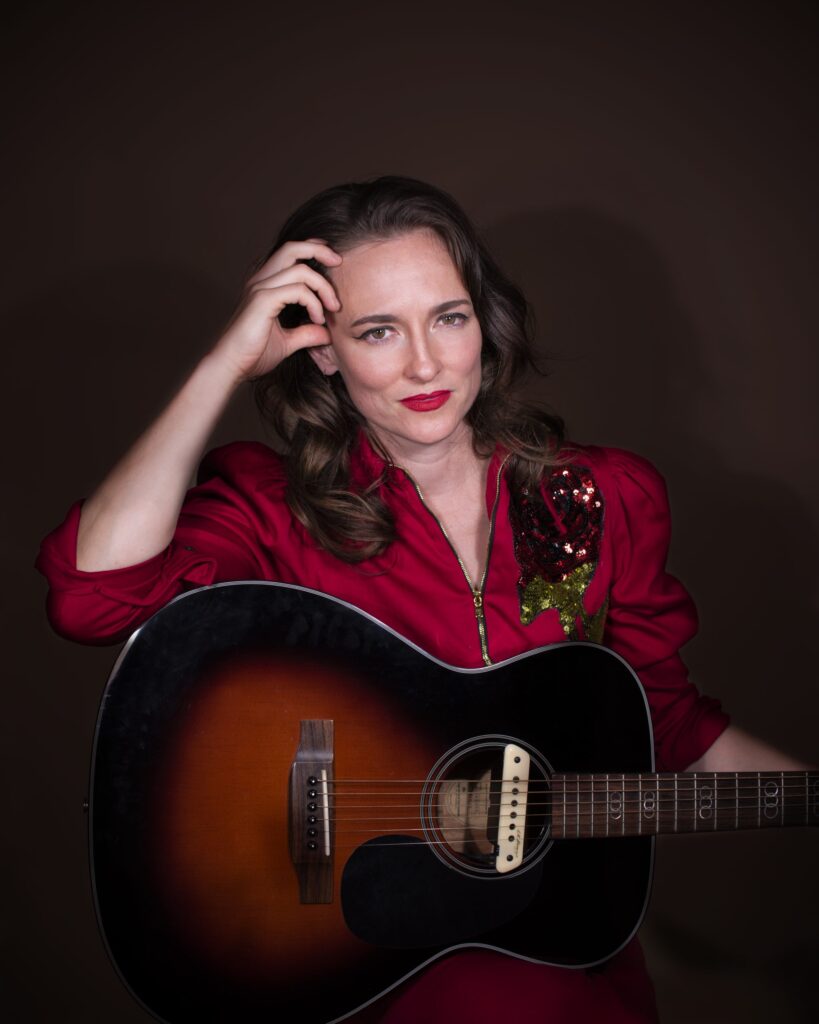When the pandemic hit and her touring-life screeched to halt, singer-songwriter Dawn Landes found herself homebound, leafing through a songbook she’d picked up years before at a used bookshop. The Liberated Woman’s Songbook was published in 1971 at the height of the Women’s Liberation Movement. Just two years later, Roe v. Wade passed, legalizing the right to reproductive freedom. In 2022, reeling from the repeal of Roe, Landes turned to the songbook for inspiration, wondering what songs of struggle and hope women were singing throughout modern history.
“We’re suddenly back in 1971 all over again,” said Landes, “I know we’re in for a long fight and it helps to find solidarity where you can.”
Landes made demos of 25 folk songs from The Liberated Woman’s Songbook and enlisted the help of her long-time collaborator, producer Josh Kaufman (Bonny Light Horseman, Bob Weir, Cassandra Jenkins). They worked on the album remotely, reimagining the songs for modern listeners and sending recordings back and forth to each other. In July 2023, they performed the music together for the first time at the renowned Newport Folk Festival.
Landes is best-known for her precise songwriting and textured vocals on her previous six albums and five EPs that meld elements of indie rock, alt-country, and folk. Songs such as “Try to Make a Fire Burn Again”, “Bodyguard”, and “Straight Lines” have built her reputation as one of our best independent singer-songwriters, showcasing an ability to tell stories that makes her the perfect choice to tell these stories.
The updated song cycle begins with a gem from 1830, “Hard is the Fortune of All Womankind” made popular by folk legends Joan Baez and Peggy Seeger in the early 1960’s. “That’s the thing about folk songs, you just keep singing them,” said Landes.
The Liberated Woman’s Songbook album leads us through a history of women’s activism from the Civil War through the high times of Women’s Lib in the 1970’s.
Among the stories highlighted are those of Ella May Wiggins, a union organizer murdered in Gastonia during the 1929 Loray Mill Strike, in the song “Mill Mothers Lament (1929).” For “Which Side are you On (1930),” Landes combined Florence Reece’s lyrics from “Which Side Are You On” with Aunt Molly Jackson’s “I am a Union Woman” two songs written about the Harlan County War of the 1930s, when miners and their families struck for a living wage. Landes was fascinated by the congruence of these two miners’ wives who never crossed paths, yet simultaneously wrote pro-union lyrics to the same melody. “The Housewife’s Lament (1866)” was discovered in the diary of Mrs. Sarah A Price who wrote “Life is a toil, love is a trouble.” One hundred years later, the Second Wave Feminist Anthem “Liberation, Now! (1970)” demands equality, “We’re more than mothers and wives with second-hand lives.” This collection of songs is a celebration of women’s lives with a heartbeat and a backbeat.
The album features extraordinary guest artists including Emily Frantz (Watchhouse, formerly Mandolin Orange) on fiddle and vocals on “Bread and Roses (1912),” Kanene Pipkin (The Lone Bellow) singing a powerful duet with Landes on “Which Side are You On (1931)”, and knock-out vocal performances by Charly Lowry, Rissi Palmer and Lizzy Ross (Violet Bell).
When Landes reached out to the family of Jerry Silverman who compiled the original 1971 songbook, they gave full permission along with the charge “keep the flame high.”
The Liberated Woman’s Songbook album will be released during Women’s History Month in a presidential election year. The women who wrote and sang these folk songs are not household names, but their words are a map for survival. Landes mused, “There’s something remarkable about walking around the grocery store in 2024 humming something from the 1800’s that feels like it was written yesterday. It’s inspiring during today’s hard times, these women struggled, resisted, endured and triumphed.”
